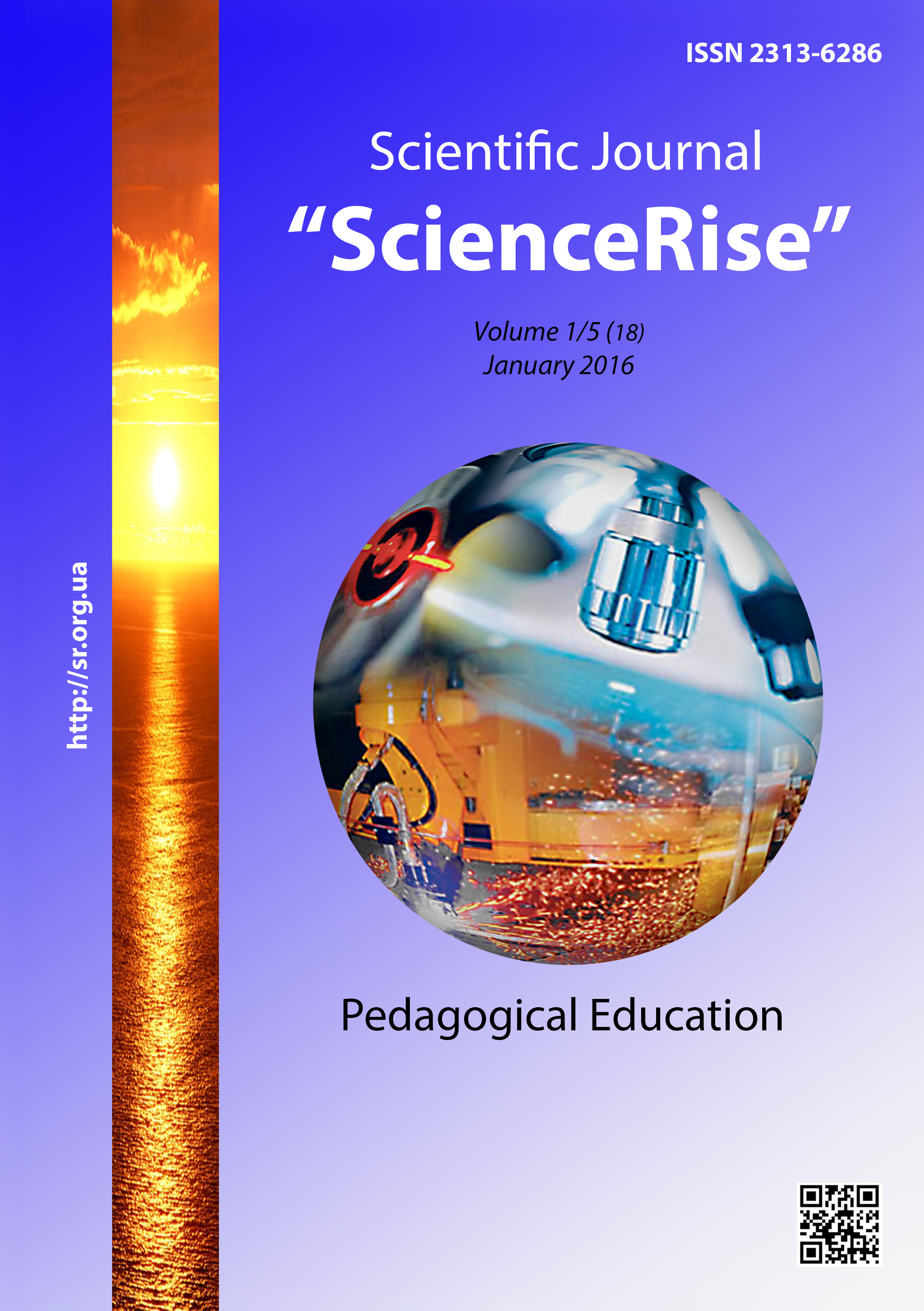Professional competence formation of technology teacher
DOI:
https://doi.org/10.15587/2313-8416.2016.59151Keywords:
technology teacher, competencies, competence, professional competence, information and communication technologies, information and educational environment, training of teachersAbstract
The problem of professional competence formation of future technology teachers in higher educational institution that is based on the use of information and communication technologies is considered in the article. The urgency of this problem is determined by contradictions between social need for highly qualified technology teachers that can competently carry out professional activities, and lack of elaborated methods and techniques of formation of their professional quality in the theory and practice of higher education
References
Nychkalo, N. G. (2002). Pedagogical and psychological research in Ukraine: problems and future directions. Modern information technologies and innovative teaching methods in training: methodology, theory, experience, problem. Kyiv, Vinnitsa: Vinnitsa Dov, 16–22.
Berbet, V. V. (2002). Implementation of information technologies in the process of monitoring student achievements at lessons of labor studies. Modern information technologies and innovative teaching methods in training: methodology, theory, experience, problems, 2, 120–123.
Gurevich, R., Boychuk, V. (2015). The current paradigm of technology education in school. Work training in schools, 6, 2–5.
Gershunsky, B. S. (2002). Philosophy of Education for the XXI Century. Moscow: Ped. Prospect of Russia, 512.
Bykov, V. Y. (2009). Organizational models of open education. Kyiv: Atika, 684.
Zhaldak, M. I., Oleinik, A. G., (1989). New information technology: information culture teacher. Sov. school, 1, 71.
Sysoevа, S. (2001). Teaching technology in continuous professional education. Kyiv: VIPOL, 502.
Spector, J., Michael-de la, T., Ileana (2001). ERIC Clearinghouse on Information and Technology Syracuse NY. Competencies for Online Teaching. ERIC Digest. Competence, Competencies and Certification. Available at: http://www.good-practice.de
Zeer, E. F. (1998). Personality-oriented professyonalnoe Education. Ekaterinburg: Izd Urals. state. prof.-ped. University Press, 126.
Bruner, J. (1989). Psychology cognition. Moscow: Progress, 412.
Goncharenko, S. U., Nychkalo, N. G. (2000). Professional education. Kyiv: High School, 380.
Holodnaya, M. A. (1997). Psychology intelligence: paradoksi Studies. Tomsk: Publishig House of Tomsk University Press, 397.
Zyazyun, I. A. (2005). Philosophy progress and prognosis of the educational system. Pedagogical skills: problems, searches, perspectives. Kyiv: Deaf: RIO HDPU, 10–18.
Pometun, A. I. (2004). Competency approach to the evaluation of student achievement. Kyiv: Presentation at the meeting of the Center for Testing Technologies, 10.
Mоrska, L. I. (2007). Methodical system of training future teachers of foreign languages to use information technology in teaching students. Ternopol: TNPU of V. Hnatiuk, 243.
Boychuk, V. M. (2012). The use of information technology in art and graphic preparation of students. Actual problems of modern science and research. Vinnitsa: LLC "Firm Glider", 47–50.
Downloads
Published
Issue
Section
License
Copyright (c) 2016 Віталій Миколайович Бойчук

This work is licensed under a Creative Commons Attribution 4.0 International License.
Our journal abides by the Creative Commons CC BY copyright rights and permissions for open access journals.
Authors, who are published in this journal, agree to the following conditions:
1. The authors reserve the right to authorship of the work and pass the first publication right of this work to the journal under the terms of a Creative Commons CC BY, which allows others to freely distribute the published research with the obligatory reference to the authors of the original work and the first publication of the work in this journal.
2. The authors have the right to conclude separate supplement agreements that relate to non-exclusive work distribution in the form in which it has been published by the journal (for example, to upload the work to the online storage of the journal or publish it as part of a monograph), provided that the reference to the first publication of the work in this journal is included.

